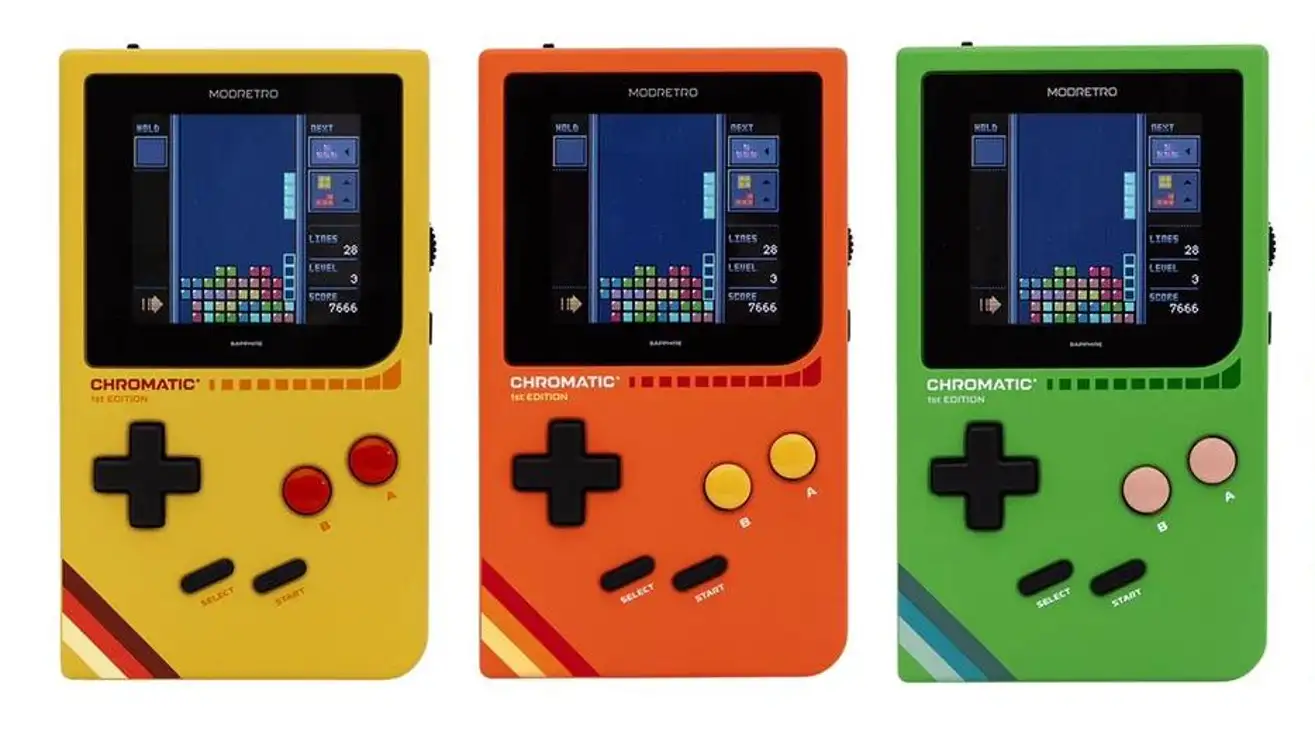
ModRetro Unveils Chromatic: A Controversial Competitor in Retro Handheld Gaming
In the realm of retro handheld gaming, enthusiasts have long awaited the return of devices akin to the beloved Game Boy. While the Analogue Pocket has garnered attention, another contender steps into the ring with the ModRetro Chromatic, offering native cartridge support without the hassle of emulation. Priced at $200, this not-Game Boy is now available for preorder, promising a nostalgic gaming experience for aficionados. However, beneath its promising façade lies a controversial association with tech figure Palmer Luckey.
Boasting a sturdy build and impressive features, the ModRetro Chromatic presents itself as a formidable competitor in the retro console handheld market. Its 160×144 backlit display, coupled with a scratch-resistant synthetic sapphire screen cover and a magnesium alloy shell, promises durability and visual clarity. Compatibility extends to classic Game Boy and Game Boy Color cartridges, as well as the unique “Chromatic” cartridges, designed explicitly for this handheld. ModRetro asserts FPGA emulation capabilities, ensuring an authentic gaming experience for users seeking to relive nostalgic moments.
The aesthetic appeal of the Chromatic is undeniable, available in vibrant hues with distinctive stripes adorning its design. However, potential buyers face a moral dilemma, as supporting the Chromatic entails contributing to a company associated with Palmer Luckey. The controversial tech entrepreneur, known for his involvement in Anduril, a U.S. military contractor specializing in drone technology, has drawn criticism for his political affiliations and controversial projects. From advocating for far-right ideologies to promoting contentious initiatives like the “virtual border wall,” Luckey’s past actions have sparked debate and divided opinions within the tech community.
For consumers, the allure of the ModRetro Chromatic’s retro gaming experience may be overshadowed by the ethical implications of supporting a company linked to Palmer Luckey. As discussions surrounding the intersection of technology, politics, and morality persist, the decision to embrace nostalgia in the digital age becomes increasingly nuanced.
You may also like
Archives
Calendar
| M | T | W | T | F | S | S |
|---|---|---|---|---|---|---|
| 1 | 2 | |||||
| 3 | 4 | 5 | 6 | 7 | 8 | 9 |
| 10 | 11 | 12 | 13 | 14 | 15 | 16 |
| 17 | 18 | 19 | 20 | 21 | 22 | 23 |
| 24 | 25 | 26 | 27 | 28 | 29 | 30 |
Leave a Reply